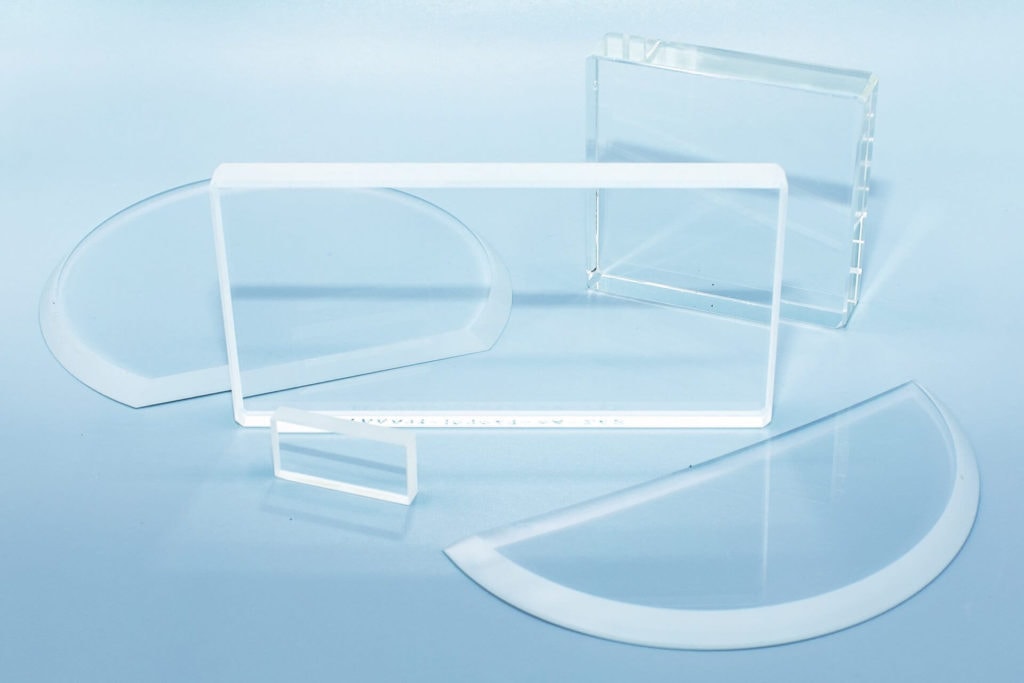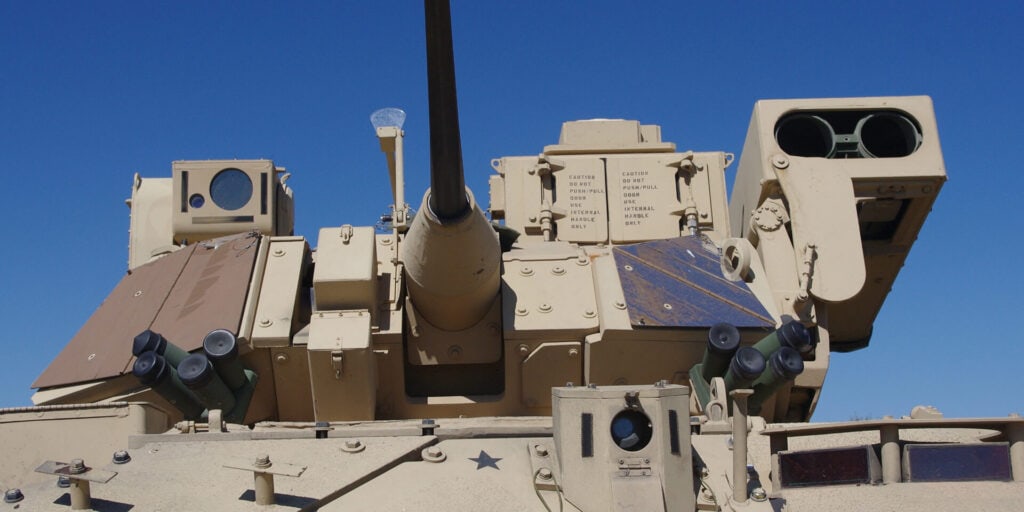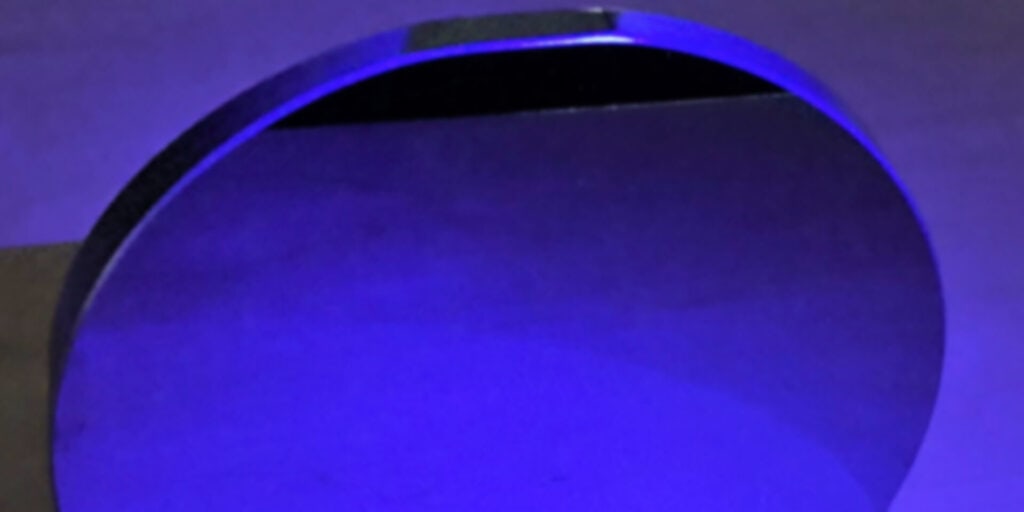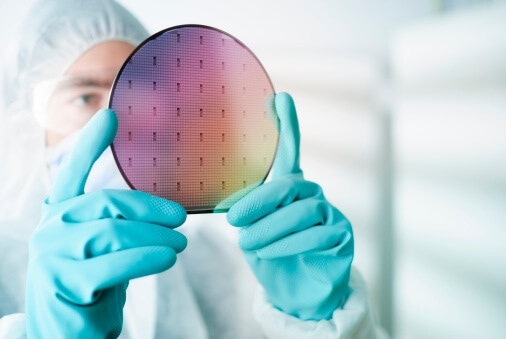Optical materials refer to a broad range of glass types with the purity, transparency, and hardness necessary for optics applications within the UV, Visible or Infrared spectrum. Although these substances share similar properties, each one has characteristics suited to specialized applications. When specifying the material for your application, consider how its optical, mechanical, and thermal properties will influence performance in relation to the instruments, sensors, or assemblies of the optical system. Key among the properties engineers consider when selecting an optical material are the transmission region, the density of the material which will impact weight and overall manufacturability.
Sydor Optics works with a variety of high-performance optical materials, including fused silica, fused quartz, crystal, display glass, infrared glass, low expansion glass and colored filter glasses. Here we will review the defining characteristics of our most popular materials.
Properties
Fused silica is known for the following characteristics:
- Extreme hardness
- High-temperature resistance
- Excellent UV optical transmission
- Low coefficient of thermal expansion
- High chemical purity
- Low refractive index variations
- Low birefringence values
- Large size capabilities
Applications
These properties are a good match for the following industrial applications:
- UV and high-power lasers
- Substrates for thin-film optical filters
- Astronomy and satellite optics
- Life science and medical instruments
- Industrial inspection optics
- Semiconductor manufacturing equipment
Properties
Fused quartz’s key properties include the following:
- Extreme hardness
- Wide operating temperature range
- Excellent shock resistance
- Excellent optical transmission in the UV and IR spectrums
- Low coefficient of thermal expansion
- High chemical purity
- Low refractive index variations with control in up to 3 axes
- Low birefringence values
- Large size capabilities
Applications
Common applications of fused quartz include:
- UV optics, mirrors, and windows
- Spectroscopy
- Metrology
- Photolithography
Properties
Display glass has the following core properties:
- Exceptional chemical durability
- Excellent mechanical properties
- High thermal resistance
- High transmission
Applications
The display glass is used in settings that demand high transmission and good temperature and chemical resistance, such as:
- Optical and instrument windows
- Debris shields for high-energy lasers
- Substrates for thin-film optical filters
- Life science and medical instruments
Properties
Optical glass has two critical properties:
- High transmission
- Highly homogenous refractive index
Applications
Optical glass is among the most versatile optical materials. Applications include:
- Projectors and high-end optical systems
- Life science and medical instruments
- Machine vision
- Metrology
Silicon Properties
Silicon has a low density and is ideal for weight-sensitive applications. It is also cost-effective for mid-wave applications. Other properties include:
- Thermal stability
- Low birefringence values
- Excellent environmental durability
Germanium Properties
Germanium is harder and denser than silicon, so it is useful in applications that require rugged optical components. Additional properties include:
- Highest refractive index among common IR materials
- Lowest optical dispersion among common IR materials
- Effective 50-50 beam splitting without coatings
- Decreased transmission as temperature increases (must be used at temperatures under 100 °C)
Sapphire Properties
Sapphire is an extremely hard and durable material with good transmission across the visible, NIR, SWIR and MWIR ranges. Other properties include:
- Good thermal stability
- High melting point (2,040 °C)
- Low transmitted wave distortion
Zinc Sulfide Properties
Zinc sulfide is a cost-effective infrared material with good transmission from 0.36 μm to 12 μm. Its multispectral version is ideal for applications requiring a single aperture for beam paths in several wavebands.
Zinc Selenide Properties
Zinc selenide has a very low thermal expansion coefficient and exceptional homogeneity across many spectrums. This IR material is a great choice for CO2 lasers, thermometry, and spectroscopy applications.
Applications
Effective infrared transmission is important in a variety of applications:
- Defense and aerospace
- Thermal imaging
- FTIR spectroscopy
- Optical gas imaging
Properties
Low expansion glass-ceramics are known for the following traits:
- Wide operating temperature range
- High thermal shock resistance
- Extreme hardness
- Permeability
- Nonporosity
- Minimal bubbles and inclusions
- High affinity for coatings
- Large size capabilities
Applications
Generally, low expansion glass-ceramics are best-suited to applications with thermal fluctuations. Here are some specific settings:
- Ultra-precision optics
- Space and aerospace optics
- Satellite mirror mounts
- Mirrors for astronomical telescopes
- Optical flats
- Low expansion laser optics
- Glass standards for metrology
Properties
- Excellent UV transmission
- High laser durability
- Low-stress birefringence
- High refractive index homogeneity
Applications
Crystals perform especially well in the following applications:
- Semiconductor equipment optics
- UV optics
- IR optics
- Microlithography optics
- Excimer laser optics
- Laser windows
- Astronomy optics
- Spectroscopy optics
- Vision correction
Properties
Specific optical properties vary depending on the filter. Color filter glasses are chemically stable and physically durable, offering improved compared to plastic film filters and lower cost compared to thin-film filters.
Applications
Typical applications for color film filters are:
- Industrial
- Machine vision
- Cinematography
- Lighting
- Clinical chemistry
- Fluorescence microscopy
- Medical instruments
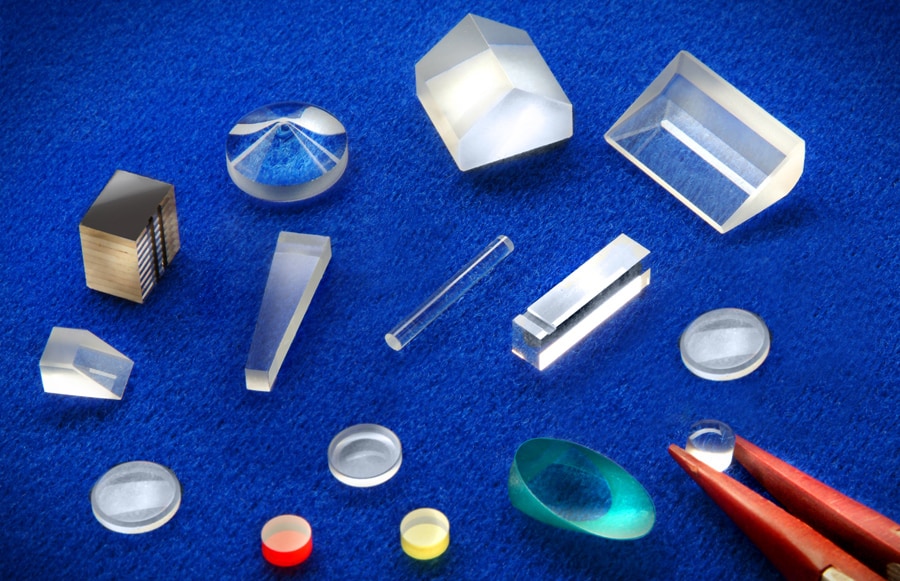
Learn More About Our Glass Materials From Sydor Optics
Sydor Optics is a global leader in plano optics enabling advanced optical manufacturing capabilities. Sydor Optics continually refines and enhances our process capabilities to manufacture a range of optical and infrared materials. Consult with Sydor Optics to determine whether your mechanical and optical specifications can be achieved for the selected materials. To learn how we maximize value for our partners, contact us today
